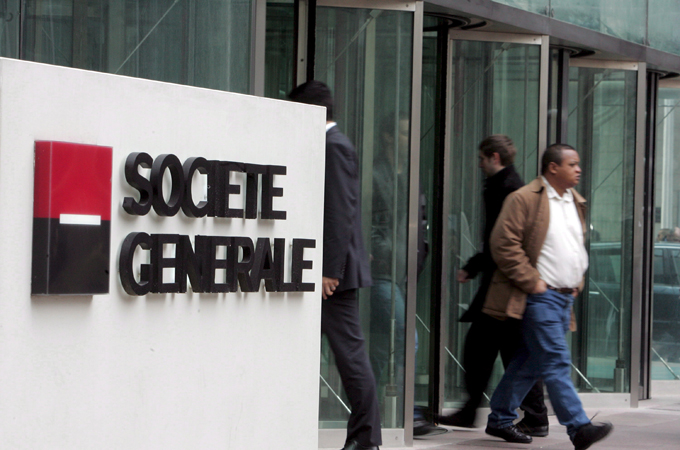Banks under pressure in France and UK
French bank shares tumble on credit rating concerns as UK unveils plans to tighten controls on financial sector.

 |
| France’s top banks are reportedly bracing themselves for a likely credit rating downgrade from ratings agencies [EPA] |
Europe’s financial sector is under fresh scrutiny with shares in French banks tumbling on fears of an imminent credit rating downgrade and British banks facing new rules intended to reduce their exposure to future economic turmoil.
French banks are considered to be particularly exposed to debt in Greece and Italy, and Reuters news agency reported on Saturday that they were bracing themselves for a likely downgrade by credit rating agency Moody’s.
Keep reading
list of 4 items‘Triple spending’: Zimbabweans bear cost of changing to new ZiG currency
Boeing hit with 32 whistleblower claims, as dead worker’s case reviewed
US imposes new sanctions on Iran after attack on Israel
Societe Generale, one of the country’s biggest banks, said on Monday it would speed up asset disposals and further cut costs to free up $5.4bn in capital by 2013 in its latest attempt to reassure the markets that it can contain any fallout from the eurozone debt crisis.
Its shares have lost two-thirds in market value so far this year, while BNP Paribas shares have dropped to almost half their value at the beginning of the year.
Credit Agricole shares were down over 10 per cent on Monday, wiping more than half off their value this year to date.
“The impact of a default by Greece would be terrible for numerous European banks: brutal drop in stock prices, need for new capital and search for liquidity,” analysts at Saxo Banque said.
In a report, Saxo Banque said the French state could be forced to intervene if the eurozone debt situation worsens.
But Christian Noyer, the governor of France’s central bank, said French banks had no liquidity or solvency problems and could withstand any crisis event in Greece.
“No matter what the Greek scenario, and whatever measures must be passed, French banks have the means to face up to it,” Noyer said in a statement.
Reform package
Meanwhile, Britain’s biggest banks also saw their shares fall sharply after a a government-appointed commission unveiled a reform package the industry says could cost it up to $11bn a year.
The Independent Commission on Banking said that British banks should isolate their retail and investment arms to avoid future bailouts.
The British government has backed the proposals, saying it would protect taxpayers and the economy.
Jeremy Batstone-Carr, a banking expert at Charles Stanley, told Al Jazeera that the deal would have far reaching implications.
“Most people believe that they put their money in the bank because they feel that the banks are safe,” Batstone-Carr said. “The commission is trying to ensure that this is the case.”
“However, there are some people who feel that this will place banks in London at a disadvantage compared to the counterparts elsewhere.”
The British Bankers’ Association (BBA), representing the country’s banks, warned that careful consideration must be given to the reforms and their potential impact on the wider recovery.
Ian Gordon, analyst at Evolution Securities, called the commission’s recommendations “unwelcome and unhelpful, but it could easily have been a whole lot worse”.
He said however, that the 2019 implementation date “allows banks some planning time to mitigate the likely adverse impact”.
The commission ruled out a total separation of retail banking from wholesale and investment banking, in part because of the greater expense, and the potential difficulties of enforcing the changes under European law.
David Fleming, national officer for the Unite union, said the 2019 target date will “bring immediate uncertainty to workers across the sector, while the greedy bankers find ways to manoeuvre around, and lobby against, these reforms”.